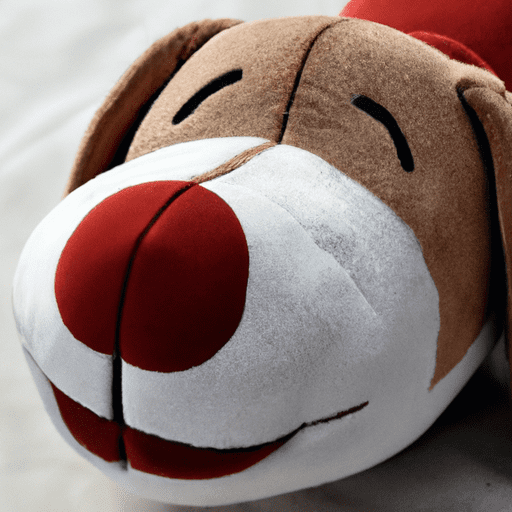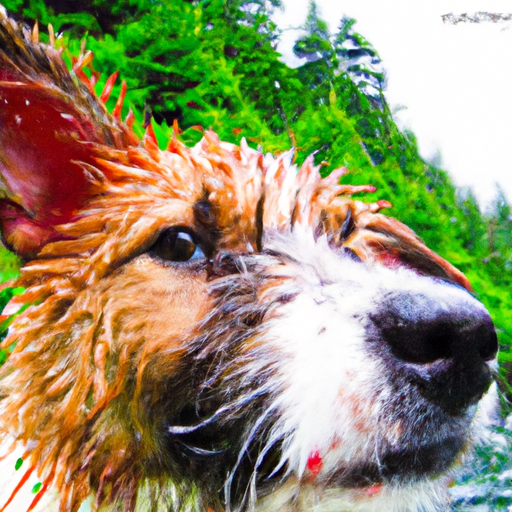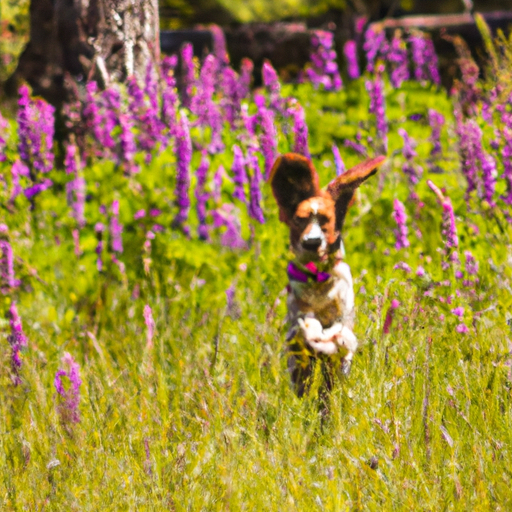So, you've recently welcomed a new addition to your family – a cute and cuddly puppy! As you embark on this exciting journey of raising a puppy, you may come across a common yet concerning behavior: resource guarding. We know you want the best for your furry friend, and in this article, we'll share some valuable tips on how to prevent resource guarding in your puppy.
Understanding Resource Guarding
What is resource guarding?
Resource guarding refers to the behavior exhibited by puppies or dogs when they try to protect their possessions or valuable resources. This behavior can include growling, snapping, or even biting when someone tries to take away their belongings. These resources can range from food and treats to toys, beds, or even certain areas in the house. Resource guarding is a natural instinct that stems from a dog's survival instinct and their need to protect their belongings.
Why do puppies resource guard?
Puppies may resource guard for a variety of reasons. It is important to understand that resource guarding is a normal canine behavior, as it shows their instinct to protect their resources. Some puppies may resource guard due to fear or insecurity, while others may do it out of possessiveness or food anxiety. Understanding the underlying reasons behind resource guarding can help you address the behavior more effectively.
Signs of resource guarding
Recognizing the signs of resource guarding is crucial to prevent potentially dangerous situations. Some common signs of resource guarding in puppies include growling, snapping, stiff body posture, a tense facial expression, or a curled lip. Puppies may also show excessive chewing, gulping, or hoarding behavior around their resources. It is essential to be vigilant and observe any signs that your puppy may display to address resource guarding promptly and avoid escalation.
Preventing Resource Guarding
Start early socialization
Early socialization plays a vital role in preventing resource guarding issues. Expose your puppy to different people, environments, and situations from a young age. This helps them build positive associations with new experiences and reduces the likelihood of them feeling the need to guard their resources. Encourage gentle handling, invite visitors to interact with your puppy, and gradually introduce them to various objects and environments.
Teach the ‘drop it' command
Teaching your puppy the “drop it” command is an essential part of preventing resource guarding. This command allows you to safely retrieve objects from your puppy's mouth without triggering any guarding behavior. Start by offering a high-value treat and saying “drop it” when your puppy has a toy or a chew. Once they release the object, reward them with the treat and offer praise. With consistent training, your puppy will learn that willingly giving up their possessions leads to positive rewards.
Create a positive association with people near resources
To discourage resource guarding behavior, make sure your puppy associates people being around their resources with something positive. During mealtime, for example, sit near your puppy and drop high-value treats into their bowl from time to time. This will help your puppy understand that people near their food or valuable resources mean good things are coming. Gradually increase the proximity and duration of people being near while continuing to reward your puppy for calm behavior.
Building Trust and Confidence
Establishing a routine
Establishing a consistent routine for your puppy helps build trust and confidence. Regular feeding times and exercise routines promote a sense of security and predictability, reducing stress and anxiety that can contribute to resource guarding behavior. When your puppy can trust that their needs will be met reliably, they are less likely to feel the need to guard their resources.
Providing plenty of exercise and mental stimulation
A tired puppy is a happy puppy! Regular exercise and mental stimulation are essential for keeping your puppy engaged and content. Engage in playful activities, provide puzzle toys, or engage in obedience training to keep their minds active. When your puppy is physically and mentally satisfied, it reduces the likelihood of resource guarding behavior arising from frustration or excess energy.
Reward-based training
Using reward-based training methods is crucial for building trust and confidence with your puppy. Positive reinforcement, such as treats, praise, and play, helps your puppy associate desired behaviors with pleasant outcomes. Reward-based training encourages cooperation and a positive relationship with you, enhancing their overall confidence and reducing the likelihood of resource guarding.
Setting Up a Positive Environment
Ensure your puppy has access to enough resources
Providing your puppy with an adequate amount of resources can help prevent resource guarding. Ensure they have enough toys, beds, and feeding stations so they don't feel the need to guard or compete over limited resources. Having multiple options available allows them to feel secure and reduces the potential for resource guarding behavior to develop.
Avoid unnecessary conflicts over resources
To avoid triggering resource guarding behaviors, it is important to create an environment where conflicts over resources are minimized. Avoid situations where your puppy may feel pressured to guard by creating separate feeding areas or implementing a rotational toy system. By reducing competition and promoting a peaceful environment, you can prevent the development of resource guarding behavior.
Supervise interactions with other pets
When introducing your puppy to other pets, it is essential to closely supervise their interactions to prevent conflict and resource guarding. Monitor their behavior around shared resources and intervene if any signs of guarding or aggression arise. Gradually introduce them to each other's possessions under supervision, rewarding positive, non-guarding behaviors, and separating them if tensions escalate.
Managing Resource-Guarding Behaviors
Avoid triggering situations
While prevention is crucial, it is also important to be prepared to manage resource guarding behaviors if they arise. Avoid triggering situations by respecting your puppy's boundaries and giving them space when they are consuming food or chewing on a valuable item. Interrupting or taking away resources abruptly can escalate guarding behavior.
Use positive reinforcement and reward-based training
When managing resource guarding behaviors, it is essential to focus on positive reinforcement rather than punishment. Punishment can create fear and anxiety, worsening the guarding behavior. Instead, use rewards to reinforce desirable behaviors such as dropping objects willingly and gentle sharing. By associating positive outcomes with non-guarding behavior, you can gradually reduce resource guarding tendencies.
Gradually desensitize your puppy
Gradual desensitization is a technique that can help reduce resource guarding behaviors. Start by exposing your puppy to mild triggers, such as moving closer to their food bowl or gently touching their toy while they are near it. Reward calm behavior and gradually increase the intensity of the trigger over time. This process helps your puppy learn that these triggers are not threatening and that good things happen when they remain calm.
Seeking Professional Help
When to consult a professional trainer or behaviorist
If resource guarding behaviors persist or escalate despite your efforts, it may be beneficial to consult a professional trainer or behaviorist. They can provide specialized guidance and techniques tailored to your puppy's specific needs. A professional can help assess the severity of the behavior and create a comprehensive behavior modification plan to address it effectively.
Training techniques and strategies
Professional trainers and behaviorists can offer a variety of training techniques and strategies to address resource guarding. These may include counterconditioning, desensitization exercises, behavior modification exercises, and more. They will guide you in implementing these techniques in a safe and systematic manner to help your puppy overcome their resource guarding tendencies.
Behavior modification programs
In some cases, behavior modification programs may be recommended for severe or persistent resource guarding behaviors. These programs involve a more structured approach, focusing on gradually changing your puppy's emotional response to triggers, building confidence, and reinforcing positive behaviors. A professional will design a behavior modification program specifically tailored to your puppy's needs, addressing the underlying causes of resource guarding.
Addressing Resource Guarding with Other Pets
Provide separate feeding areas
When living with multiple pets, it is important to ensure that each pet has their own designated feeding area. This reduces the potential for resource guarding during mealtime and promotes a more peaceful environment. Separate feeding areas give each pet the space and security they need to enjoy their meals without feeling the need to guard their food or compete with others.
Monitor interactions closely
Monitor interactions between your puppy and other pets closely, particularly when resources are involved. Watch for any signs of resource guarding, aggression, or tension. If conflicts arise, address them promptly and separate the pets if necessary. By actively managing their interactions, you can prevent resource guarding behaviors from developing or escalating.
Gradually introduce sharing resources
Introducing the concept of sharing resources gradually can help reduce resource guarding tendencies between pets. Start by offering high-value treats simultaneously to both pets in a controlled and supervised environment. Gradually increase the complexity by allowing them to share toys or access common areas under close supervision. Reward positive, non-guarding behaviors to reinforce the idea that sharing is beneficial and fosters positive interactions.
Dealing with a Reactive Puppy
Recognize the signs of reactivity
Reactivity in puppies refers to an exaggerated response to certain triggers or stimuli. Signs of reactivity may include barking, lunging, growling, or snapping when faced with perceived threats or uncomfortable situations. It is important to be able to recognize these signs in your puppy in order to address and manage their reactions effectively.
Avoid confrontational situations
When dealing with a reactive puppy, it is crucial to avoid confrontational situations that may trigger their reactive behavior. This includes keeping your puppy away from situations or environments that make them uncomfortable or anxious. By removing them from potentially stressful scenarios, you can help reduce their reactivity and prevent further negative associations.
Focus on positive reinforcement and redirection
Positive reinforcement and redirection are key when working with a reactive puppy. Reward your puppy for calm behavior and positive responses to triggers. Redirect their attention to more desirable behaviors or alternative activities when you notice signs of reactivity. This helps shift their focus away from the trigger and promotes more appropriate responses.
Consistency and Patience
Be consistent with training and boundaries
Consistency is crucial when addressing resource guarding or any other behavioral issue. Establish clear rules and boundaries for your puppy and ensure that everyone in the household is consistent in their training methods and approaches. Reinforce positive behaviors consistently and avoid inadvertently rewarding guarding behaviors, as this can confuse your puppy. With a consistent approach, your puppy will understand what is expected of them and be more likely to comply.
Give your puppy time to adjust and learn
Learning new behaviors takes time and patience, especially when addressing resource guarding. Understand that changing your puppy's behavior requires patience and persistence. Give them time to adjust to new training techniques, routines, and expectations. Celebrate small victories along the way and be prepared for setbacks. Every puppy learns at their own pace, so allow them the time they need to develop new habits and overcome their resource guarding tendencies.
Celebrate small victories
Recognize and celebrate your puppy's progress, no matter how small. Each step toward reducing or eliminating resource guarding should be acknowledged and rewarded. Celebrating small victories encourages your puppy's willingness to learn and reinforces their trust and confidence in you. Remember that addressing resource guarding is a journey, and every bit of progress is an achievement worth acknowledging.
Conclusion
Resource guarding is a common behavior displayed by puppies and dogs, but it can be managed and prevented through early socialization, positive reinforcement training, and creating a positive environment. By understanding the underlying reasons behind resource guarding, implementing appropriate training techniques, and seeking professional help if necessary, you can help your puppy overcome resource guarding tendencies and foster a harmonious relationship within your household. With consistency, patience, and a focus on building trust and confidence, you can establish a strong bond with your puppy based on mutual respect and understanding.






